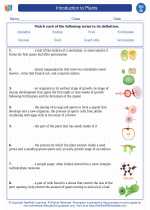Genome
The genome is the complete set of genetic material within an organism. It contains all the information needed for the growth, development, functioning, and reproduction of that organism.
Structure of the Genome
The genome is made up of DNA (deoxyribonucleic acid), which is organized into structures called chromosomes. In eukaryotic organisms, the genome is typically located within the cell nucleus and in some organelles like mitochondria and chloroplasts. Prokaryotic organisms have their genome located in the nucleoid region within the cytoplasm.
Functions of the Genome
The genome contains the instructions for building and maintaining an organism. It controls the production of proteins, which are essential for carrying out various functions in the body. The genome also plays a crucial role in inheritance, passing genetic information from one generation to the next.
Studying the Genome
Genomics is the field of study focused on the structure, function, evolution, and mapping of genomes. Scientists use various techniques such as DNA sequencing, genome mapping, and bioinformatics to study the genome of different organisms.
Study Guide
- Define genome and explain its significance in an organism's life.
- Describe the structure of the genome and the role of DNA in it.
- Explain the functions of the genome in controlling the production of proteins and inheritance.
- Discuss the field of genomics and the techniques used to study the genome.
[Genome] Related Worksheets and Study Guides:
.◂Biology Worksheets and Study Guides High School. Introduction to plants
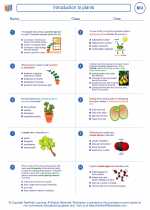
 Worksheet/Answer key
Worksheet/Answer key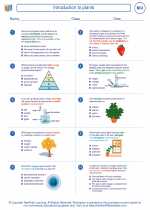
 Worksheet/Answer key
Worksheet/Answer key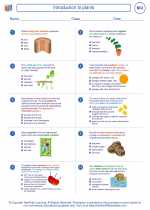
 Vocabulary/Answer key
Vocabulary/Answer key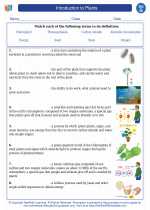
 Vocabulary/Answer key
Vocabulary/Answer key
 Vocabulary/Answer key
Vocabulary/Answer key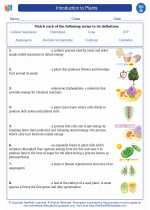
 Vocabulary/Answer key
Vocabulary/Answer key
 Vocabulary/Answer key
Vocabulary/Answer key